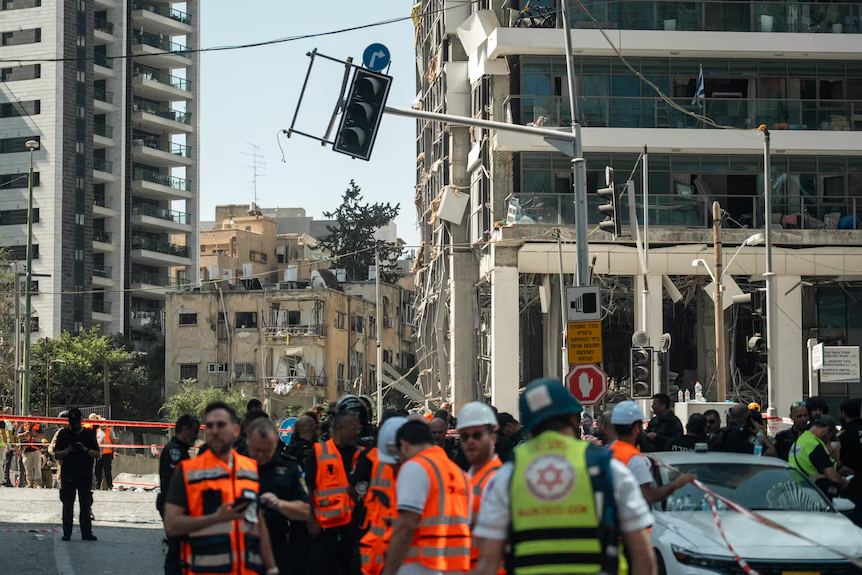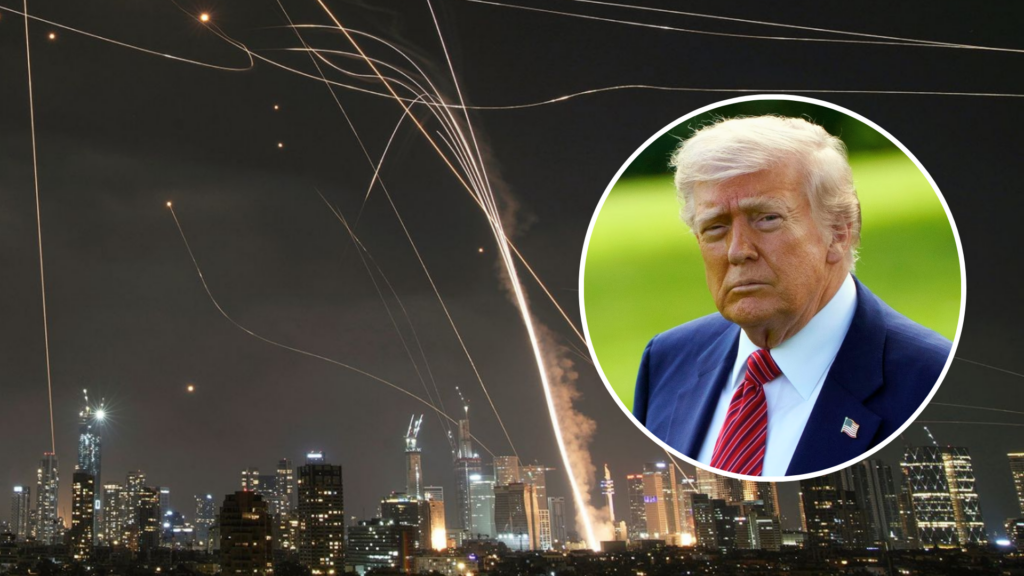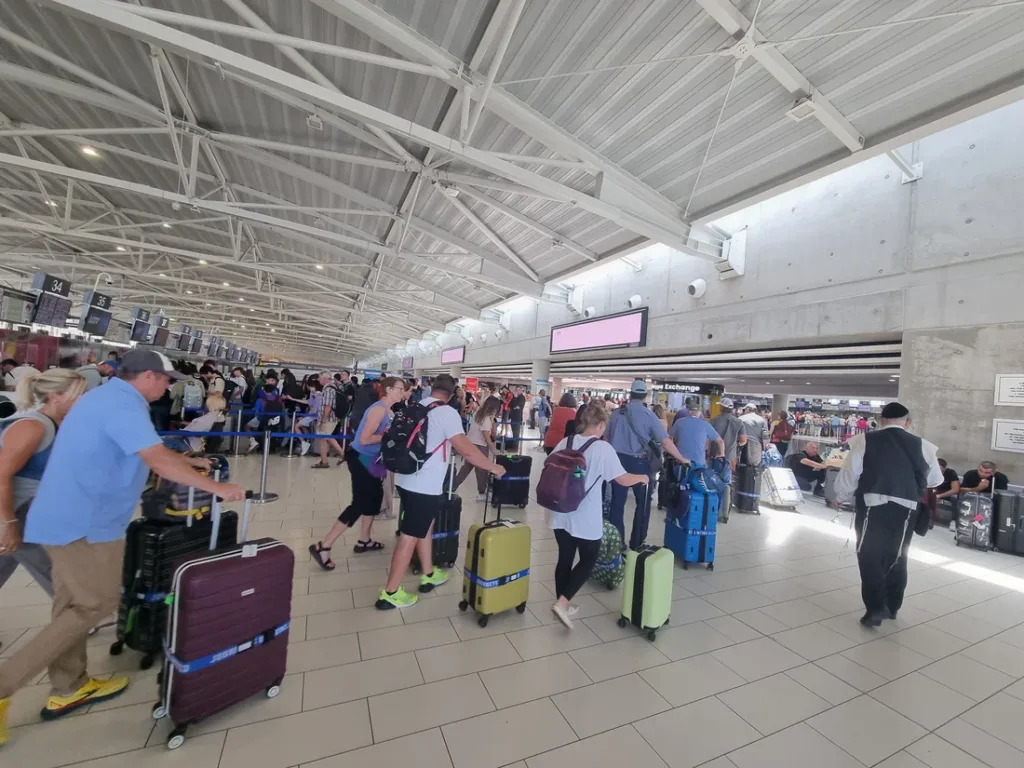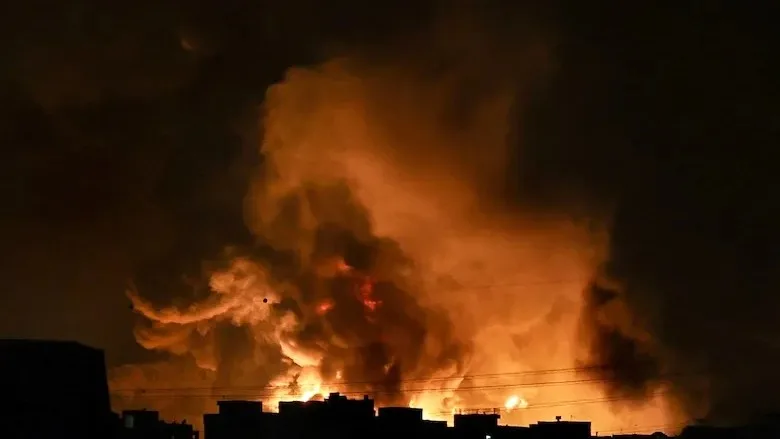The Israel-Iran conflict has reached a critical new phase, with escalating military strikes, rising civilian casualties, and growing international fallout.
Israeli Prime Minister Benjamin Netanyahu has declared that Iran will “pay the full price” after a missile launched from Iranian territory struck the Soroka Medical Centre in the southern Israeli city of Beersheba, injuring 40 people including hospital staff and patients.
“We will exact the full price from the tyrants in Tehran,” Netanyahu said at the hospital site on Thursday. “Are we targeting the downfall of the regime? That may be a result, but it’s up to the Iranian people to rise for their freedom.”
Israel responded with a wave of airstrikes on Iranian nuclear and military infrastructure, including facilities at Natanz, Isfahan, Khondab and the Arak heavy water reactor. While Israel initially claimed to have also hit Bushehr – home to Iran’s only operational nuclear power plant – officials later admitted this was incorrect. Iran dismissed the claim as “psychological warfare.”

Iran’s Revolutionary Guards retaliated by launching missiles and drones at Israeli military and industrial sites in Haifa and Tel Aviv. One missile struck a residential building in Ramat Gan, while the hospital in Beersheba was severely damaged. An Israeli military official denied claims that military installations were near the medical centre. Most of those wounded were lightly injured, and no fatalities were reported at the hospital.
An Israeli military official stated that Israel has so far destroyed approximately two-thirds of Iran’s ballistic missile launchers and estimates that Iran has fired around 450 missiles and 1,000 drones at Israel since hostilities began last week.
According to a Washington-based Iranian human rights group, at least 639 people have been killed in Iran, including 263 civilians, and over 1,300 have been wounded. Iran has stopped publishing casualty figures and has cut internet access across much of the country. Images of destruction are no longer broadcast on state media, contributing to a growing sense of uncertainty within the population.
On the ground, thousands have fled Tehran as Israeli strikes continue. Arash, a government worker in the capital, described seeing “three dead children and two women” after a nearby building was destroyed.
“Is this how Netanyahu plans to ‘liberate’ Iranians? Stay away from our country,” he told Reuters by phone.
Eleven-year-old Samira, now sheltering with her grandparents in Urmia, said, “I’m afraid Israel will hit our home and my mum will die. I’m too scared. I just want to go home.”
The conflict has also affected global diplomacy. US President Donald Trump is considering whether to join Israel’s military campaign. White House Press Secretary Karoline Leavitt said on Thursday that Trump would decide within two weeks.

Meanwhile, Iran warned it would adopt a “different strategy” if a third party joins Israel in the war. Tehran also rejected international calls to end its nuclear program, saying it will continue to enrich uranium up to 60%, a technical step away from weapons-grade material.
As the conflict rages, several countries are evacuating their nationals. Australia has suspended operations at its embassy in Tehran, with Foreign Minister Penny Wong urging Australians to leave the country if safe.
“Those who are unable to, or do not wish to leave, are advised to shelter in place,” she said. The Department of Foreign Affairs and Trade has deployed staff to Azerbaijan to assist with crossings from Iran.
The Greek Ministry of Foreign Affairs confirmed that 16 Greek nationals were safely evacuated from Iran to Azerbaijan “under extremely adverse conditions”, with 140 more citizens evacuated from Israel earlier in the week.
Cyprus has become a vital transit hub for those escaping the conflict. Crowds have gathered at Larnaca airport and port, with evacuees arriving by military aircraft and cruise ship.

“It’s getting more and more unbearable, rockets are threatening our lives,” said one dual Portuguese-Israeli citizen. A Canadian citizen said he had nine flights cancelled before reaching Cyprus by cruise, adding, “The Canadian embassy didn’t consider it an emergency.”
With the humanitarian toll mounting, the path forward remains uncertain. Iran’s Foreign Minister is expected to meet with European counterparts in Geneva, signalling a possible diplomatic track. Yet with civilian infrastructure under attack and threats from both sides intensifying, the likelihood of a broader regional conflict appears to be increasing by the day.
Source: The Australian
